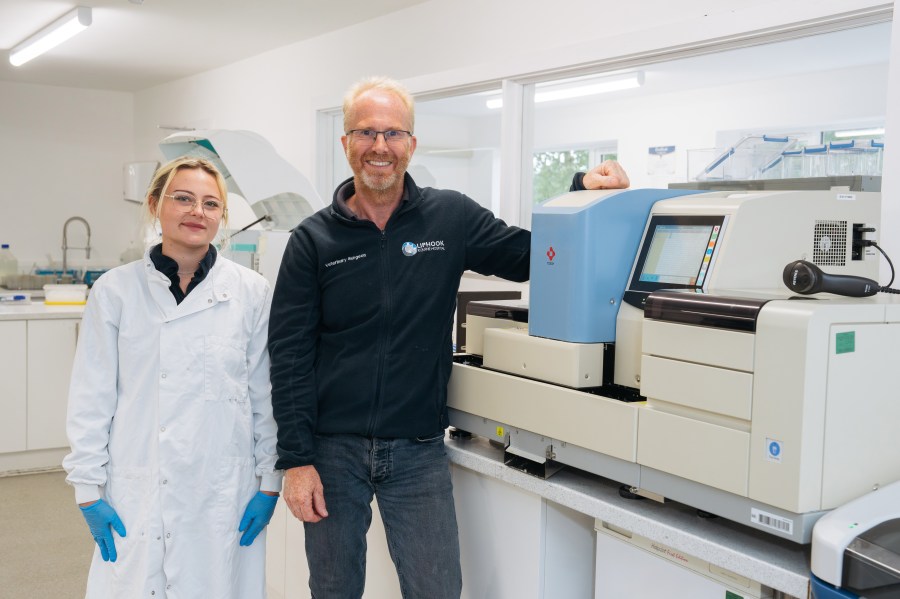Machines which more accurately detect the concentration of certain substances in blood samples have been purchased by equine vet practice VetPartners to benefit horses with Cushing’s disease.
VetPartners has bought four new immunoassay analysers to replace the technology currently used in its three flagship equine hospitals – Liphook in Hampshire, Rainbow in North Yorkshire and Rossdales in Suffolk.
The Tosoh AIA 900 analysers will be used to measure insulin and adrenocorticotropic hormone (ACTH) levels to help the diagnosis of Equine Cushing’s disease and Equine Metabolic Syndrome.
What is Cushing’s
Equine Cushing’s disease – for which the correct veterinary term is Pituitary Pars Intermedia Dysfunction (PPID) – is one of the most common disease syndromes to affect horse health. According to the National Equine Health Survey in 2018*, it is estimated that 20% of horses and ponies over the age of 15 are affected.
Normally the hypothalamus, a small region of the brain, produces a substance called dopamine which regulates hormone production by the pituitary gland. This is located at the base of the horse’s brain.
The pituitary gland produces a variety of hormones that play an important role in maintaining and controlling many bodily functions.
However, horses and ponies with Cushing’s disease don’t produce enough dopamine, which means that the pituitary gland becomes uncontrolled and produces too many hormones.
Adrenocorticotropic hormone (ACTH) is one hormone that is produced in excess, although it is likely that there are also many others.
Signs of Cushing’s disease include laminitis, muscle wastage, abnormal fat deposits, abnormal sweating, recurrent infections, lethargy, increased thirst and urination, abnormal hair coat and reduced fertility.
Diagnosis and treatment
The ACTH test is the simplest and most common test for Cushing’s disease in horses.
A vet will take a blood sample and send it to a laboratory to measure the levels of the hormone ACTH. High levels will indicate that your horse has Cushing’s disease.
New technology
Liphook Equine Hospital has been trialling the new immunoassay analysers, which were created for use in human laboratories, for the past 18 months. Liphook receives hundreds of blood samples from veterinary practices all over the UK and Europe each week.
“There are several analytic methods available for use in horses, and we wanted to see if this alternative machine had diagnostic benefits over the ones we’d used previously,” said Professor Andy Durham who heads up the laboratory at Liphook.
“The ACTH molecule we test for immediately begins to break down after a blood sample is taken, even if you handle it carefully and place it in chilled packaging, but this new analyser is able to detect much more of the degraded ACTH molecule, and therefore it gives a more accurate result.
“As a comparison, ACTH values measured using the previous method suffered about three to four times more degradation over 24 hours. What this means for horse owners is that it will reduce the risk of false negative results in ACTH tests, so more horses suffering from Cushing’s disease will receive the treatment they need.”
ACTH results on the Tosoh AIA 900 analyser will report lower values than previously, and to reflect this, Professor Durham and his team have calculated new ranges for PPID testing results. The new values will also reflect seasonal fluctuations in ACTH levels.
Additionally, the testing period has proved there is greater accuracy when measuring insulin levels in blood samples.
*View the full 2018 National Equine Health Survey findings here.
Image © VetPartners.








